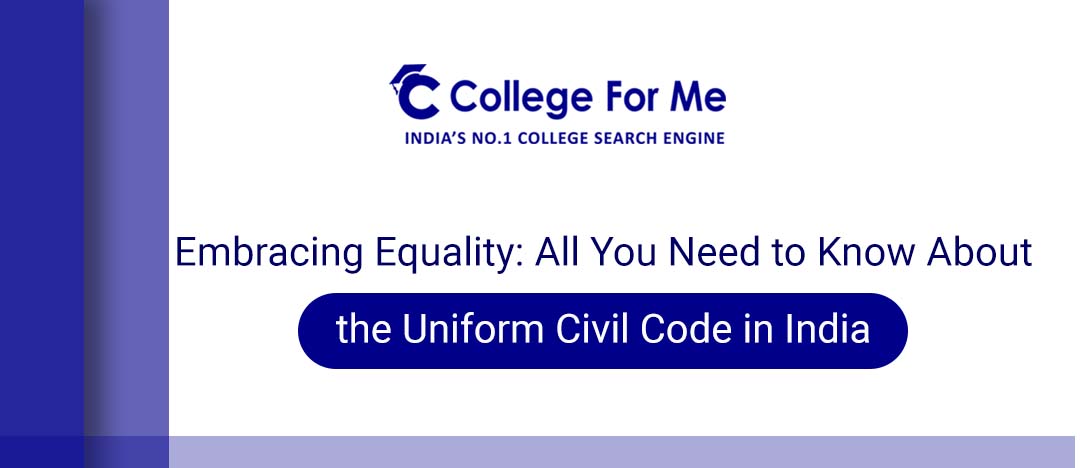Career Scopes Of A B.Tech. Student
There is a high demand for B.Tech. degree holders in the private sector, yet, there is also the opti...

The Uniform Civil Code (UCC) has been a topic of significant debate and discussion in India for decades. It aims to provide a common set of laws governing personal matters such as marriage, divorce, inheritance, and adoption for all citizens, regardless of their religion.
In this blog post, we will explore the key aspects, significance, challenges, and potential implications of the Uniform Civil Code in India.
Understanding the Uniform Civil Code:
The Uniform Civil Code is a proposal to replace the existing system of personal laws, which are based on religious practices and vary for different communities in India. The objective is to establish a uniform set of laws that applies to all citizens, ensuring equality and justice in personal matters.
Promoting Equality and Justice:
The primary goal of the Uniform Civil Code is to ensure equality and justice for all individuals, irrespective of their religious affiliation. It aims to eliminate discriminatory practices and create a level playing field, where personal matters are governed by common laws that uphold fundamental rights and principles of equality.
Addressing Gender Equality:
One of the key aspects of the Uniform Civil Code is its potential to address gender disparities prevalent in personal laws. By establishing a uniform set of laws that applies to all citizens, it seeks to eliminate discriminatory practices against women and promote gender equality in matters such as marriage, divorce, and inheritance.
Fostering Social Integration:
Implementing a Uniform Civil Code can foster social integration by promoting a sense of unity and a common identity among citizens. It aims to transcend religious boundaries and create a cohesive society where individuals are governed by a common set of laws, regardless of their religious background.
Challenges and Concerns:
The implementation of a Uniform Civil Code faces several challenges and concerns:
Public Discourse and Debate:
The topic of the Uniform Civil Code demands active public discourse and informed debate. It is important for individuals to educate themselves about the various perspectives, engage in respectful discussions, and critically analyze the arguments put forth by proponents and opponents of the UCC.
Potential Implications:
If implemented effectively, the Uniform Civil Code can have several implications:
The Way Forward:
Implementing a Uniform Civil Code requires a balanced approach that respects individual rights, cultural diversity, and religious sensitivities. It necessitates inclusive and transparent processes, involving consultations with various stakeholders and communities.
Conclusion: The Uniform Civil Code is an important and complex subject that seeks to establish a common set of laws governing personal matters in India. Understanding its significance, challenges, and potential implications is crucial for informed discussions and decision-making.

There is a high demand for B.Tech. degree holders in the private sector, yet, there is also the opti...

If you are looking for a bright and prospective career, then getting a B.Tech. in CSE must be under ...
Comments (0)